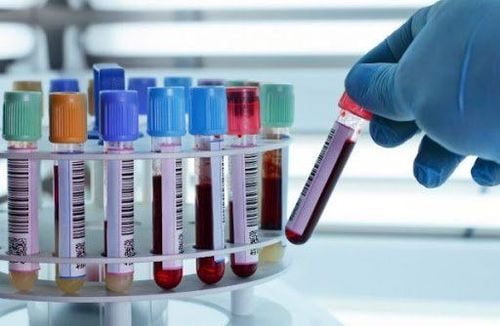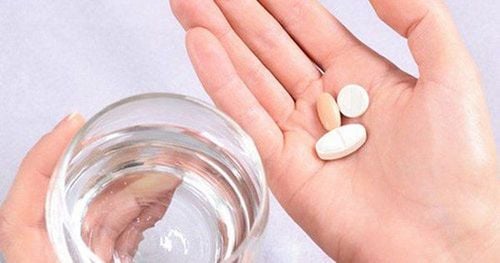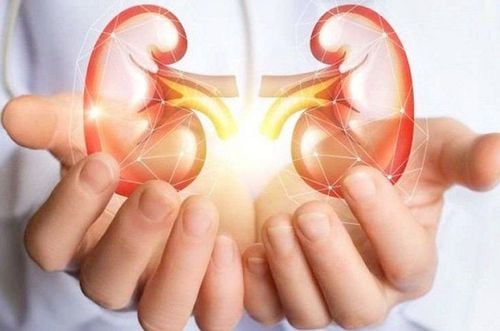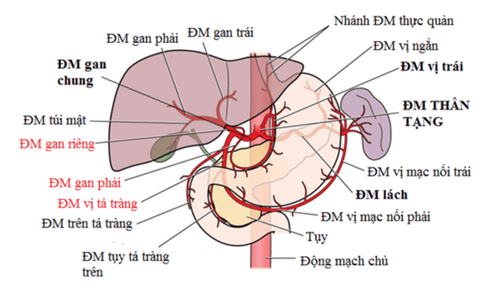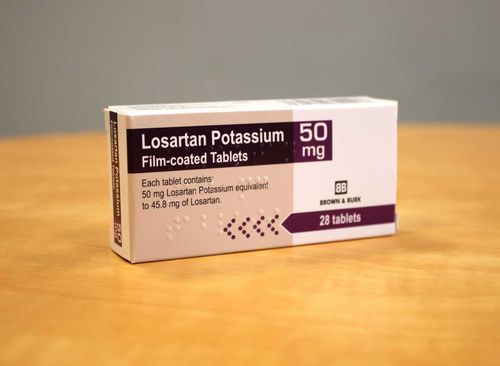This is an automatically translated article.
Hyperchloremia is an excess of chlorine in the blood, often associated with kidney problems. In addition, elevated blood chlorine can also be a sign of many other unusual health conditions.
1. What is a normal blood chlorine concentration? What is increased blood chloride concentration?
Chloride is an electrolyte that maintains the acid-base balance (in other words, pH) in the body, regulates fluids, and transports nerve impulses.
To determine the concentration of chlorine in the blood, the patient is usually ordered to do a blood chlorine test (performed on plasma or serum). Before performing this test, patients need to fast before taking blood because the chlorine concentration can decrease after eating, making the test results inaccurate.
In the normal range, blood chlorine levels can range from 96 - 110 mEq/L or 96 - 110 mmol/L. If the blood chlorine test results are higher than these values, the patient is assessed as hyperchloremic.
The kidney is the organ responsible for the regulation of chloride in the body. So, if a chloride imbalance occurs, you are likely to have kidney problems. In addition, other health conditions such as severe dehydration, diabetes, etc. can also affect the kidneys' ability to maintain normal blood chloride levels.
2. What symptoms indicate that you have hyperchloremia in your blood?
Over-chlorination in the blood (defined when the blood chlorine concentration is higher than normal) can cause some typical symptoms such as:
Fatigue, sluggish body, weak muscles. Thirsty. High blood pressure. These symptoms usually appear if the cause of the hyperchloremia is acidosis (excessively acidic blood). However, some other causes may cause no significant symptoms. Therefore, the detection of excess chlorine in the blood usually has to be through periodic blood tests, in very few cases from clinical symptoms.

Tình trạng dư Clo trong máu có thể gây ra mệt mỏi, uể oải, cơ hoạt động yếu
3. Hyperchloremia – what is the cause?
Like sodium, potassium and other electrolytes, chlorine levels in the body are often very carefully regulated.
As mentioned above, the kidneys - bean-shaped organs located just below the rib cage on either side of the body's spine - are responsible for filtering blood and maintaining blood components at stable levels, allowing The body's normal activities take place in a healthy way.
When there is an excess of chlorine in the blood, it means that the blood chlorine level increases, this can be a sign of many health problems, ranging from normal to serious such as:
Infusion of too much seawater in the hospital due to surgery or physical impairment. Patient has severe diarrhea. Both acute and chronic kidney disease can cause hyperchloremia. Eating too much dietary salt or drinking salt water. Bromide poisoning. Metabolic acidosis: the kidneys do not filter acid out of the body, leaving the body with an excess of acid. Respiratory alkalosis: when there is too little carbon dioxide in the blood (a common condition in people who are short of breath). Certain drugs such as carbonic anhydrase inhibitors (used to treat glaucoma and other disorders of the body) can also increase blood chloride levels if used long-term.
4. How to treat hyperchloremia?
To effectively treat hyperchloremia, doctors need to clearly identify the cause of this condition and fix the root cause.
From the above principle, several possible treatment measures include:
For dehydration, the patient will be treated with hydration therapy. If the patient's body is hyperchloremic due to receiving too much saline, the patient will temporarily stop the infusion until the chlorine level in the blood returns to normal. If the problem is caused by the medication, you need to stop taking it or adjust the medication as directed by your doctor. For kidney problems, patients may need dialysis in severe conditions to ensure normal functioning of the body. However, most cases can be corrected with medical treatment. In patients with metabolic acidosis, the patient is usually treated with sodium bicarbonate. General note for patients with excess chlorine in the blood regardless of the cause is:
Drink enough water every day. Limit caffeine and alcohol use as they can make dehydration more intense.

Hãy uống đủ nước mỗi ngày để cải thiện tình trạng dư clo trong máu
5. Complications of hyperchloremia
Elevated blood chlorine levels is not a normal phenomenon but is related to high acidity in the blood, so, if not treated in time, the patient can face serious health problems Important as:
Kidney stones . Injuries to the kidneys are harder to recover from, leading to impaired kidney function (renal failure). Cardiovascular problems. Muscle and bone problems that interfere with daily activities. Comatose. Even excess chlorine in the blood can be fatal. Increased blood chlorine is a sign that you have a health problem. Usually, the symptoms of hyperchloremia are not so obvious and are only detected if you have regular blood tests. Therefore, check your health more often to detect this condition early, so that you can have timely treatment.
Vinmec International General Hospital is one of the hospitals that not only ensures professional quality with a team of leading medical doctors, modern equipment and technology, but also stands out for its examination and consultation services. comprehensive and professional medical consultation and treatment; civilized, polite, safe and sterile medical examination and treatment space. Customers when choosing to perform tests here can be completely assured of the accuracy of test results.
Please dial HOTLINE for more information or register for an appointment HERE. Download MyVinmec app to make appointments faster and to manage your bookings easily.
Reference source: bsgiadinh.vn; healthline.com




